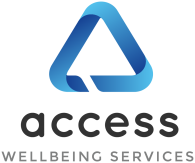
How to manage conflict in the workplace
|
Listen to this article
Getting your Trinity Audio player ready...
|
Conflict Management falls under the banner of Alternative Dispute Resolution (ADR). ADR is a process that
assists all parties to manage and resolve issues in order for them to exhibit behaviours in the workplace
that create a respectful and professional work environment.
Conflict management processes may be of a facilitative, advisory, determinative or, in some cases,
a combination of these. Access Wellbeing Services (AWS) utilises the facilitative model of conflict
management being mediation; the role of the Mediator is to assist the parties to identify the pertinent
issues and the process endeavours to reach an agreement on some or all of the issues.
Here are some tips for managing conflict in the workplace:
- Stay calm. It is easy to lose your temper when frustrating work situations occur, but this usually only makes things worse. Before you say anything take a breath or two.
- Don’t personalise. There will always be times when people have different opinions. Remain open and listen to what the other person is saying and don’t take what they say personally.
- Choose your battles. Not every situation that you disagree on is worth fighting about. Select the issues you cannot compromise on and let the others go. Ask yourself, “what outcome am I prepared to live with?” Consider the cost of not reaching an agreement.
- Unresolved conflict. Avoiding conflict usually doesn’t work. Unresolved conflict at work can fester and create an unstable work environment. It can also re-emerge later, often on a larger scale because you are now dealing with both past and present issues.
- Focus on solutions. It is easy to play the blame game. Discuss what can be done to improve how your work together and attempt to find common ground. Present your ideas and invite your co-worker to share their preferences, feedback about what could work and why.
- Be assertive. Assertiveness is about respecting our rights while respecting the rights of others. Active listening, stating the problem as factual rather than a judgement, stating how this affected you using ‘I’ statements, and stating what outcome you would prefer, are all important ingredients in assertive communication.
- Speak and listen. Allow the other person to speak and practice active listening. Active listening allows the other person to express their point of view to you, with you focusing on really hearing and understanding what they are saying. Active listening includes making good eye contact, maintaining a relaxed and open posture and using language such as “I heard you say … did I understand you correctly?” Remember you can understand what someone is saying while disagreeing.
- Be open to compromise. Provide your co-worker with any options or proposals you have, invite them to share what options they think could work. Look at their comments constructively and see what options can be generated.
- Is there more to it? To ensure positive outcomes are long term, consider whether broader issues could be contributing to a conflict. Organisational change, lack of role clarity and workplace stress can all be part of increased workplace conflict.
- If it isn’t working. Consider involving a third party such as a supervisor, manager or mediator. A third party can offer a more objective, neutral perspective or perhaps see where the situation is breaking down.
- Look after yourself. Dealing with conflict can be time consuming and draining for all involved. Ensure you look after both your physical and psychological health through good nutrition, exercise, meditation and accessing personal support.
For more information on our Conflict Management Program, contact us today.
